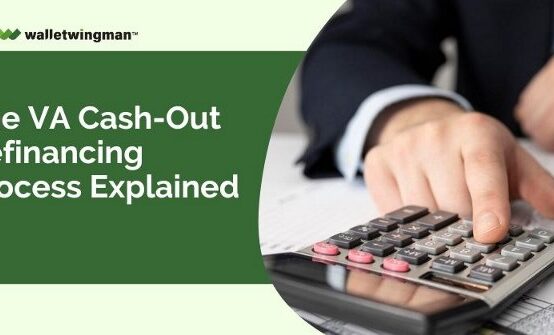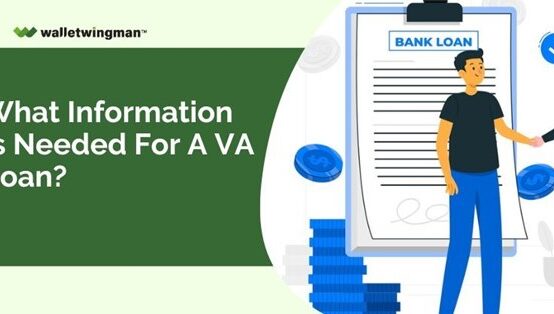You determined that you are qualified for the VA loan program. You find a house that meets your needs and falls within your budget, so you make an offer to buy it. Maybe there’s some back-and-forth negotiation, after which you and the seller may finalize a purchase price.
But then the home appraiser comes along, evaluates the property, and determines that it’s worth less than the price you’ve agreed to pay. What do you do next? Is the whole deal ruined?
Maybe not. In this article, we’ll explore some of the options you have when the VA loan home appraisal is lower than the purchase price.
All VA Loans Require a Home Appraisal
VA loans are a kind of government-backed mortgage. You apply for the loan through a mortgage lender in the private sector, just as you would with a conventional or “regular” loan. The difference is that the federal government provides the lender with a partial guarantee, thereby reducing their risk.
This added layer of protection allows mortgage lenders to be a bit more adjustable when qualifying VA loan applicants. For example, borrowers can qualify for this program with no down payment, no mortgage insurance, and a less-than-perfect credit score.
However, the home you are purchasing will have to be evaluated by a VA-approved appraiser to determine its current market value.
The appraiser will also evaluate the home to make sure that it meets the minimum property requirements for the VA loan program, which we have covered in a separate article.
To determine the market value, the appraiser will use tax records, recent sales data for the area, and other information relating to property prices. Ultimately, he or she will make an informed opinion on how much the house is worth based on local market trends.
What Happens During the VA Appraisal?
The VA loan appraisal process involves an evaluation of the house as well as an examination of comparable homes in the market to see how the home stacks up. Appraisers evaluate a home’s roof, attic, basement, and mechanical systems.
Each VA appraisal procedure requires certain VA loan requirements that the VA appraiser must complete and submit to the lender, who then applies the appraiser’s recommendations to the loan, including the home’s fair market value.
How It Relates to Mortgage Approval
When it comes to getting approved for a VA loan, home appraisals matter a lot. They can determine whether the loan proceeds toward closing or stops in its tracks.
Mortgage lenders try to avoid scenarios where they are lending more than a particular property is worth. If the borrower defaults on the mortgage and the lender has to foreclose on the home, they want to be sure they can sell it for at least as much as they lent the borrower.
But it’s not just the lender who requires an appraisal for VA-backed loans. The U.S. Department of Veterans Affairs, which manages the program, also requires a comprehensive home appraisal.
Now that we’ve laid some groundwork, let’s revisit the question. What can a home buyer do if the VA loan appraisal comes lower than the purchase price?
How Does the Appraisal Process Work?
One of the common questions posed by people is how long does a VA appraisal takes. The appraiser collects comparable sale and property condition information into a report, which is typically published to the VA’s secure website within 10 business days, but this might vary based on the location of the house and if you fulfill the VA appraisal requirements.
The appraisal report will include an estimated value for the property and a list of any repairs required to bring it up to VA standards. Lenders have no influence over the VA appraiser’s timeframe or analysis.
What causes a VA appraisal to be low?
A low VA appraisal can occur for a variety of reasons, most of which are beyond the seller’s or borrower’s control.
- Home Appearance: According to Berkshire Hathaway Property Services, curb appeal and home design have a substantial influence on a property’s evaluated worth. Overgrown landscaping, dangerous or invasive plants, dead trees, and unclean or damaged house exterior elements can all reduce your property’s evaluated worth. Outdated interior or external components can also make a significant impact.
- Lack of Comparable Properties: Appraisers require house sales data to effectively evaluate the worth of your property, according to Kairos Appraisal Services. “Flipped” properties in your region that resold for a big profit might distort property sale comparisons. On the other side, Kairos stated that if there aren’t enough recent sales in your neighborhood, appraisers may have to compare your house to homes in different locations, which might boost or lower the estimated value.
- Changing Market Conditions: According to Kairos, changing market conditions might limit the availability of comparable sales data. If your market has just become hot or prices are fast rising, backlogged and backward-looking sales records may be unable to keep up with the market.
When the Loan Appraisal Is Lower Than the Purchase Price
When it comes to measuring the market value, a VA loan home appraisal can have one of two outcomes:
The appraiser determines that the property value is equal to or greater than the amount the home buyer has agreed to pay. In this case, the appraisal should raise no red flags, and the loan will move on to the next stage, which is underwriting.
The appraiser decides if the property is worth less than the agreed-upon purchase price. This scenario can create speed bumps that slow the process down and require the home buyer to make some decisions.
So, what are your options in the second scenario when the VA loan appraisal is lower than the purchase price?
In their guide to buying a home with a VA-backed mortgage loan, the Department of Veterans Affairs identifies three potential paths forward in a low appraisal scenario:
1. Request a Reconsideration of Value (ROV)
If the VA appraisal comes back lower than the purchase price, the borrower can request a Reconsideration of Value. You might think of it as a kind of appeal process.
The borrower needs to submit a written request to the lender, along with any supporting documentation that they believe will justify a higher appraisal value (e.g., comparable sales data).
As it states on the VA.gov website:
“You can ask your real estate agent to provide the lender with valid sales data showing the property is worth more than its appraised price. The lender will ask the appraiser to reconsider based on this information.”
This is why it’s best to work with a real estate agent with experience with VA loans and property appraisals. Your agent will be able to help you gather supporting data required for a Reconsideration of Value.
2. Renegotiate the Sales Price
When the VA home appraisal comes in lower than the purchase price, the buyer could also urge the seller to drop the price to match the appraised home value. Whether or not the seller agrees will largely depend on current market conditions.
In a highly competitive market, where sellers receive multiple offers, buyers might be less likely to lower their prices. But in a slower market, where the seller’s more motivated to make a deal, this might be a viable strategy for moving forward.
3. Pay the Difference in the Form of a Down Payment
The VA discovered a third alternative in which the house buyer pays the difference between the appraised and purchase price out of pocket. In this scenario, the borrower would spend extra money at closing in the form of a down payment.
There is a fourth option that the Department of Veterans Affairs did not mention: walking away from the deal. In some cases, a home buyer might be unable to find a clear path forward. So, they might have to walk away from the transaction and find another home to purchase.
Walking away might be the only option if the following conditions are true:
- The VA loan appraisal comes in lower than the purchase price.
- The seller refuses to modify the sale price to reflect the appraisal.
- The home buyer does not have enough money to cover the difference.
Can I Get a Second VA Appraisal?
You cannot obtain a second assessment because you believe the house is worth more than the appraisal included in the Notice of Value (NOV).
However, suppose you think the appraiser overlooked facts that may have affected the valuation or that the appraisal didn’t meet the VA appraisal checklist or other relevant rules. In that case, you might be eligible to request a second evaluation or a review of the NOV.
You cannot achieve VA loans appraisal on a property that already has a valid NOV. However, a non-VA appraiser might submit an extra evaluation to support a request for a higher value.
According to the VA’s lending manual, lenders or sellers must pay for a second appraisal unless the veteran purchaser requests that the value be reconsidered themselves.
As a home buyer, the best thing you can do is identify a strategy for all possible scenarios. Talk it over with your real estate agent as well. Create a plan of action if the VA home appraisal ends up being lower than the purchase price. And remember, there are other houses out there!


 How to Buy a Condo Unit with a VA Mortgage Loan
How to Buy a Condo Unit with a VA Mortgage Loan  How Credit Scores Affect Mortgage Rates on a VA Loan
How Credit Scores Affect Mortgage Rates on a VA Loan  How Much Can I Borrow When Using a VA Loan to Buy a House?
How Much Can I Borrow When Using a VA Loan to Buy a House?  The VA Cash-Out Refinancing Process Explained
The VA Cash-Out Refinancing Process Explained  10 Important Quotes from the Official VA Loan Buyer’s Guide
10 Important Quotes from the Official VA Loan Buyer’s Guide  What Information Is Needed for a VA Loan?
What Information Is Needed for a VA Loan? 